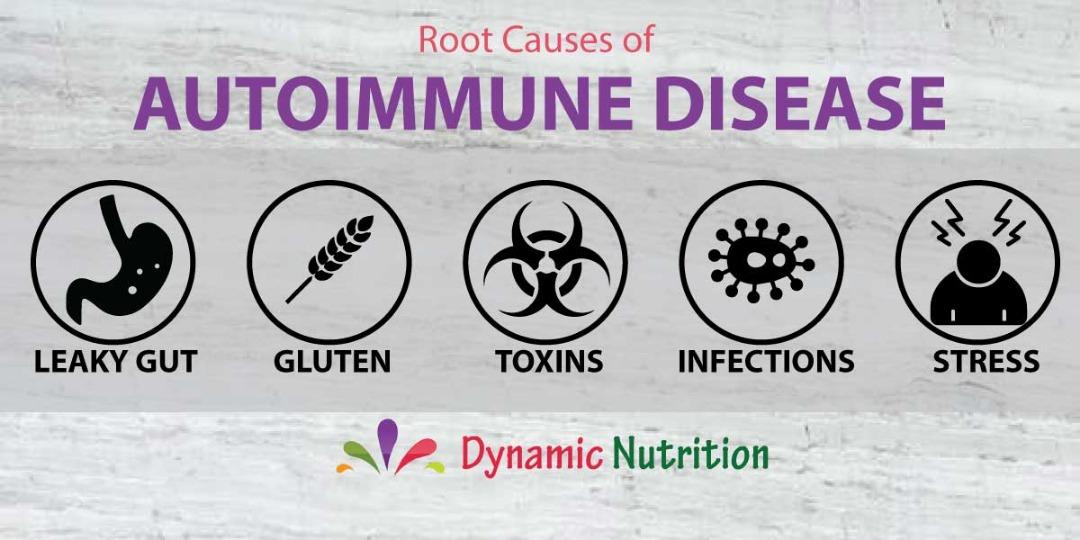Autoimmune diseases result from a dysfunction of the immune system. The immune system function is to protect you from diseases and infections. However, the immune system can produce autoantibodies that attack healthy cells, tissues, and organs. This can lead to autoimmune disease.
When you have an autoimmune disease, your immune system does not distinguish between healthy tissue and antigens. Hence, the body sets off a reaction that destroys normal tissues.
Autoimmune Disease Symptoms
The early symptoms of many autoimmune diseases are very similar, such as:
- Hair loss
- Skin rashes
- Achy muscles
- Fatigue
- Swelling and redness
- Low-grade fever
- Difficulty concentrating
- Numbness and tingling in the hands and feet
Individual diseases can also have their own unique symptoms. For example, type 1 diabetes causes extreme thirst, weight loss, and fatigue. IBD causes belly pain, bloating and diarrhea.
Root Causes of Autoimmune Disease
There are 5 root causes of autoimmune disease:
1. Leaky Gut
The gut is the gateway to health, it covers 80% of your immune system, and you can’t have a healthy immune system without a healthy gut. If you have an autoimmune disease your gut has become leaky, meaning the tight junctions that typically hold your gut lining together have become loose. This allowing undigested food particles, microbes, toxins, and more to escape your gut and enter your bloodstream.
Therefore, your immune system recognizes all these particles as foreign invaders. This sending your immune system into high alert and triggering a huge rise in inflammation. This continual strain on your immune system eventually causes it to go haywire, and it ends up attacking your own tissues by mistake.
2. Gluten
Gluten contributes to autoimmune disease in three key ways:
- It is the primary cause of leaky gut because gluten triggers the release of zonulin in your intestines. Zonulin is a chemical that tells your gut lining to “open up”.
- It is highly inflammatory, meaning it stresses your immune system.
- The gluten protein has a similar chemical structure to some of your body’s tissues, especially thyroid. This can lead to molecular mimicry, where your body mistakes your tissues for gluten and attacks them.
3. Toxins
Toxic molds (mycotoxins) and heavy metals such as mercury are the two main toxins in those autoimmune conditions. Mycotoxins are very volatile compounds produced by toxic molds that raging on the immune system.
We are exposed to heavy metals like mercury in different ways: mercury amalgam fillings in teeth, fish consumption, and the environment. Mercury is toxic to our bodies and is related to autoimmune diseases.
4. Infections
Scientists have long suspected that infections from bacteria, viruses, and other toxins involve in the development of autoimmunity. There are a number of infections, including Epstein Barr (the virus that causes mono), Herpes Simplex 1 and 2, E. coli that link to autoimmune diseases.
5. Stress
Levels of stress-related illnesses and stress have been shown to trigger and intensify autoimmune disorders. Stress disrupts immune function through several distinct pathways. Chronic stress leads to long-term inflammation that never really shuts off, creating autoimmune disease.












Facebook Comments